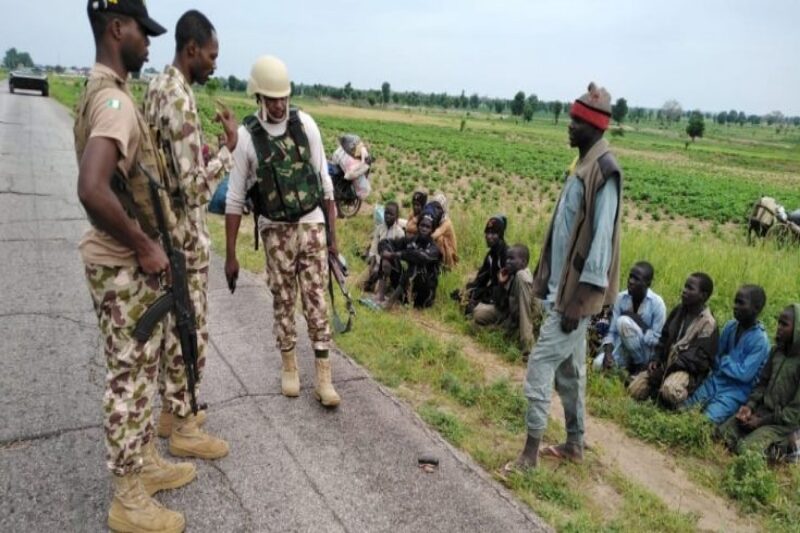Fifty women and girls from Maiduguri, all victims of the insurgency, were selected by the Allamin Foundation for Peace and Development to attend a two-week training course where they received psychosocial support and trauma management training, as well as ways to build their self-confidence and entrepreneurial skills that will enable them to start their own businesses.
Many of the women were forced into marriage at an early age by insurgents and had children by them.
Tijjani Alkali, who is a facilitator at the foundation, told RNI that the training course aimed to help empower the women and taught them methods to relieve the trauma they had lived through.
“We selected 50 women. The training course helped them to learn entrepreneurial skills so that they were able to become self-reliant, independent and empowered.
“Many of the women had lost husbands and families and were severely traumatised. They were in desperate need of psychosocial support. We took care of them, getting experts in the field of trauma to teach them ways so that they could heal and adjust to being back in their communities.
“The response was exciting to see. With the help of the experts, they began to understand that what had happened to them was destined but there were ways to get over the trauma and start living a normal life again. A life of happiness and laughter. The change in the girls and women was evident. It was not easy for them but it was a great achievement and we thank God for that.”
Zainab Muhammad Ali, aged 22, told RNI that she and her family had fled from the Bama Local Government Area to Maiduguri.
“Gunmen attacked us and forced us to flee from Bama. Many died in the process. Before the attacks began, I was a typical village girl. But the insurgents soon put an end to that. I changed both physically and mentally. I became a victim. But the training course was an eye-opener for me. It helped to make me feel empowered. I have learnt to start believing in myself and the world around me.”
During the training, the women and girls received not only psychosocial care, but they were also taught skills that would enable them to start a business of their own. They were taught tailoring, cosmetology, knitting and how to make pomade [a jelly oil for the body]. Each one received ₦35,000 to help them start their businesses.
Ali said she no longer felt like a victim. “I realise I am a survivor. I feel empowered. I know I can take care of myself and maybe even help others who are victims. I thank God to be where I am today. I’m so relieved. It’s like I am a new person.”
Muslima Umar said: “I am originally from the Gwoza Local Government Area. I suffered and lost everything when the insurgents attacked us. This course has helped me to understand my feelings better. I am definitely beginning to heal. It was a difficult process because trauma can really take over your mind and body. This course has motivated me and shown me how to avoid or at least deal with trauma. It’s a learning process but I feel as if I can face life again. I don’t feel so disturbed. I have been given the means to deal with trauma and I am healing.”
Dr Muhammad Abba Fugu, from Maiduguri’s Federal Neuro-Psychiatric Hospital, said: “We encourage people with mental health issues to come to the hospital often. Mostly, there are no physical signs that someone has a mental disorder and the people around them are not aware of it.
“It has improved recently because more people have realised the dangers trauma can cause. It is not a stigma. What some of these people went through during the insurgency was nothing short of diabolical. They would not be normal if they were not scarred by the inhumanity and evil meted out to them.
“Luckily, more people are seeking counselling these days. Some need drugs to help them heal. Some are admitted for longer-term treatment. Everyone experiences and deals with trauma in their own way. Mental healthcare has come a long way and it is wonderful when we see people beginning to heal, whether the process is longer for some than others.”
Fugu urged people who felt mentally unstable to visit the hospital.
AISHA SD JAMAL






